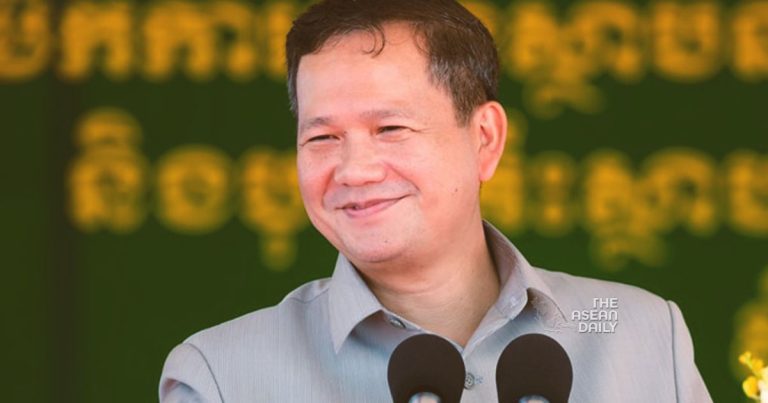18-7-2023 (PHNOM PENH) Cambodia’s long-time leader, Hun Sen, is set to win yet another election this weekend and has vowed to eventually pass the reins of power to his eldest son. However, the 70-year-old has given no specific timeline for the dynastic succession and has signaled that he will continue to wield influence even after standing down.
Critics have deemed Sunday’s vote a sham due to the near-total absence of genuine opposition parties. They argue that more than 30 years after UN-brokered peace accords ended decades of bloody conflict, Cambodian democracy is in a sorry state.
Hun Sen has five children and has carved out political roles for all three of his sons, with the most senior responsibilities entrusted to his eldest. Hun Manet, 45, has taken on a number of his father’s campaign duties this year and will contest a parliamentary seat for the first time this weekend.
Hun Manet has served as commander of the Royal Cambodian Army since 2018 and has met with foreign dignitaries and world leaders, including China’s President Xi Jinping, Cambodia’s main ally and benefactor. However, Phil Robertson of Human Rights Watch has warned that the prospect of a dynastic handover “makes Cambodia look more like North Korea than a genuine democracy”.
Critics fear that without a new leader drawn from outside the Hun family, there will be no change to Cambodia’s autocratic political system. Hun Sen’s politics are shaped by his experiences of revolution and war as a young man during the genocidal Khmer Rouge regime. Those privations molded him into one of the most effective – and most ruthless – politicians of his generation and thrust him into the prime ministership in 1985, aged just 32.
Sebastian Strangio, author of a book about Hun Sen’s rule, has said that so far Hun Manet has shown “little evidence that he will introduce anything more than cosmetic reforms to the current political system”. Political analyst Ou Virak has compared him to an unproven, if well-trained, martial arts fighter, saying, “the problem is he’s been spoon-fed, mostly with a golden spoon…you have to allow them to fight, to spar, to survive.”
Hun Sen has given no indication of exactly when he intends to step down and has also told voters he will continue to exert power after leaving his post. “Although Hun Sen won’t be the prime minister, the political management will be still in the hands of Hun Sen,” said the leader, who habitually refers to himself in the third person in public speeches. He told voters at the end of June not to worry and said he would not let his son damage the country.




